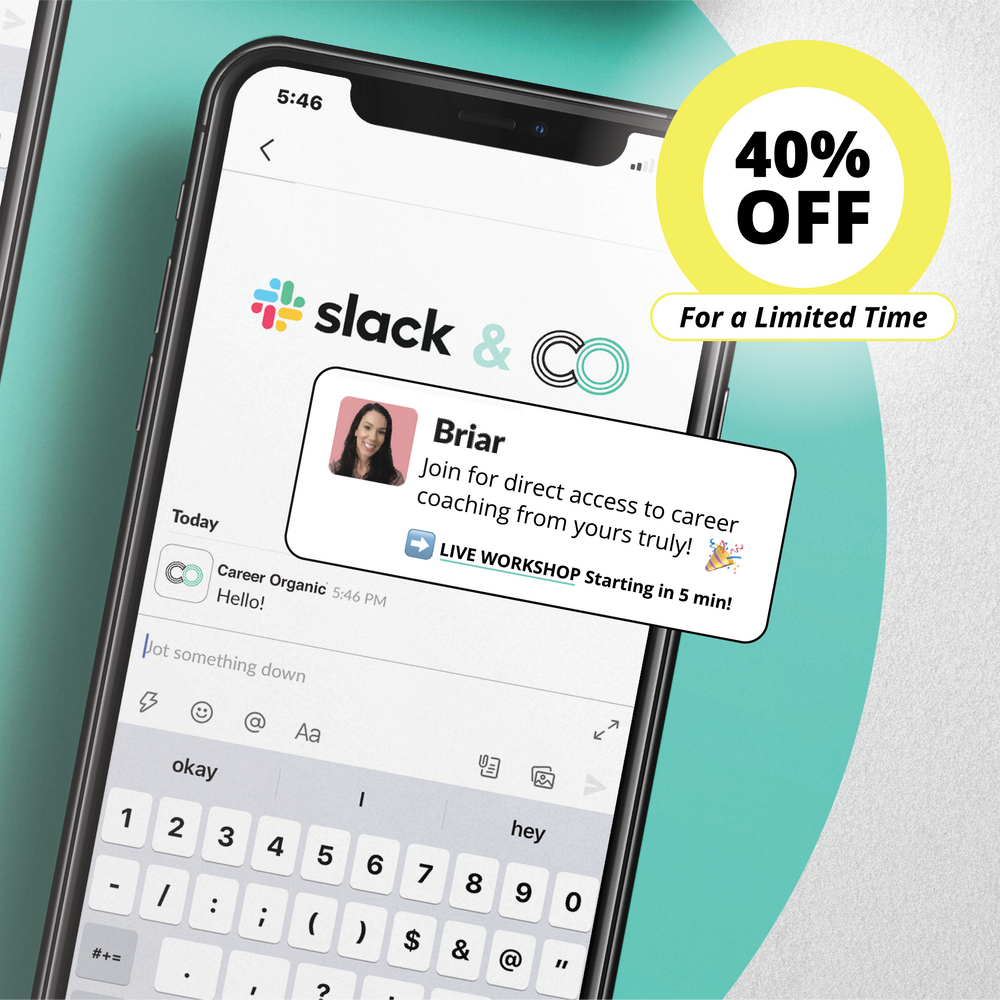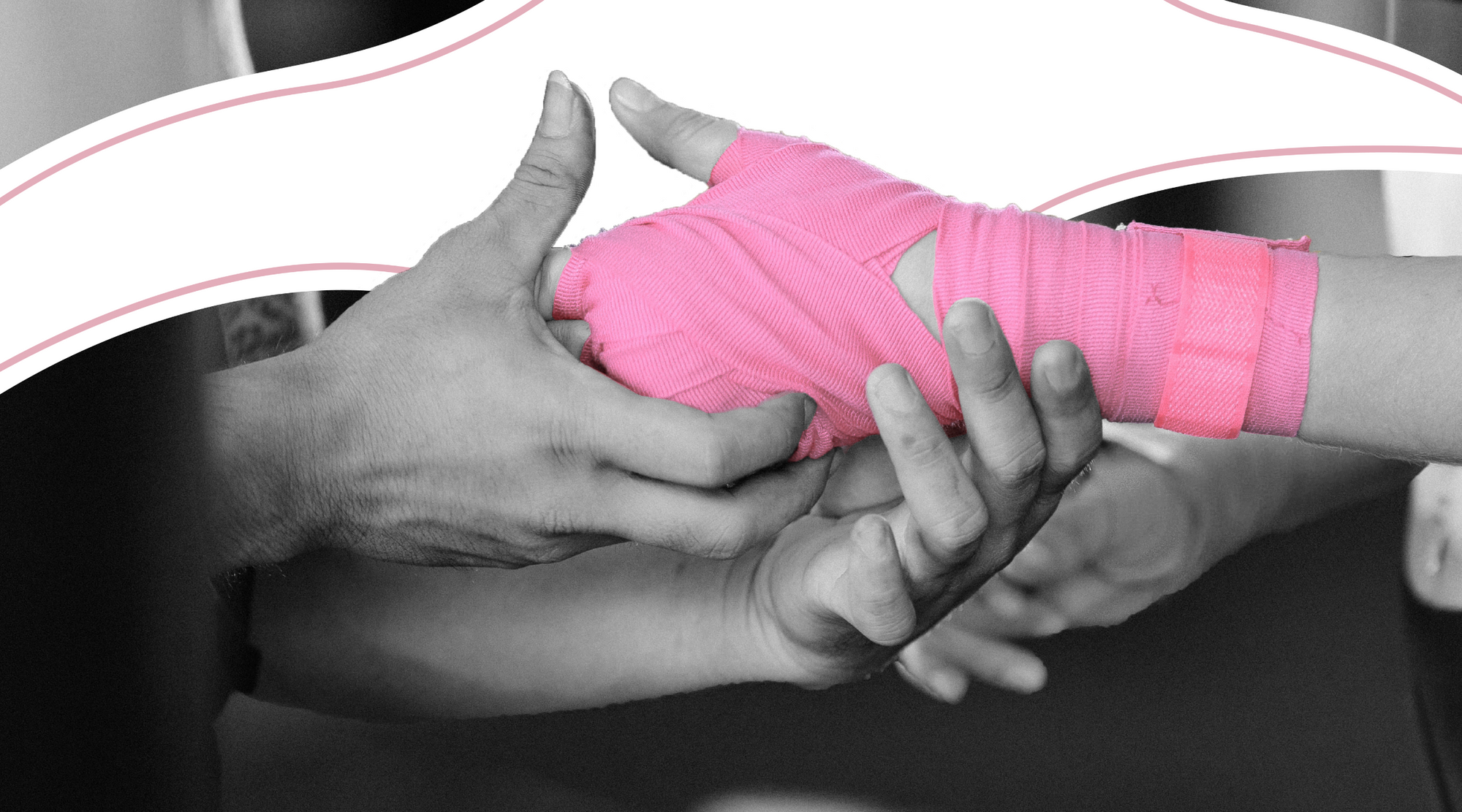The upbeat chitter-chatter turned to an awkward quiet as the energy drained out of the room. Walking towards my locker, I did my best to ignore the whispers and dirty looks which sait it all: "What is she doing here?"
There is nothing like some passive-aggressive teen girls to help you feel welcomed, but unfortunately, this was my new norm. It was only a few weeks into the season, and it was clear that proving to everyone why I belonged on the varsity basketball team was going to be an uphill battle.
"Ironically, what got me into this position was my passion and dedication to the game."
I was quick, agile, and fearless, a tireless defender, eager to go up against our opponents’ best players. This scrappiness and competitive drive on the court ultimately earned me the nickname “The Animal.” It also earned me a starting spot on the varsity basketball team only two games into my first season and as a freshman. A position, which I quickly found irked just about everyone, from the older Varsity teammates, my freshman and sophomore peers, and unfortunately, some parents as well.
From day one, some of my varsity teammates made their dislike known. Any chance they got to sabotage me, they took. I can still remember vividly the day we got to select our game jerseys. Our coach had finally convinced the school to allocate money for the girls’ team to get proper uniforms. I remember the excitement as we all gathered in the locker room, brand-new jerseys laid out across the floor.
Seniors picked first, juniors, sophomores, then freshman. An upperclassman (sophomore) intentionally took the #34. It was well known that it had been my number from 7th and 8th-grade ball. It was my favorite number (shoutout to one of my favorite players at the time, Hakeem Olajuwon of the Houston, Rockets). He was magic in the key and had a killer hook shot that I could only dream of perfecting one day.
Thinking back on that moment, it makes me nod my head and chuckle now, but attacks like that were hard for freshman me. While I loved basketball and knew I could be a major asset to the team, I felt isolated and out of place, almost questioning if I even belonged there.
Of course, all of those insecurities disappeared every moment I stepped on the court. On the court, I was home, doing what I loved. Everything else just disappeared – I was alive and in the moment. On the court, my age didn’t matter; I was either an asset to the team’s overall objective, or I wasn’t. Our high school egos and the pride and insecurities that came with them melted into a single unit when we hit the court. And together, we had a clear objective at hand – to defeat the next opponent.
While I may not have been ready to handle the petty drama off the court, I quickly realized I didn’t have to.
As long as I focused on adding value and contributing to the team's overall objectives, the resentment over my age and grade would become irrelevant.

So I did just that, ignoring the jabs and staying laser-focused on how I could help the team win games. Whenever someone made a degrading comment, I refused to react and just let my contributions do the talking. What I lacked in words, I made up for in grit and true self-confidence. In the end, by putting my ego aside and just doing what I could to add value and help us win games, I earned the respect of my teammates and learned a valuable life lesson that would serve me throughout my career.
It turns out, being perceived as ‘too young’ would become a common theme in my life. My next challenge came as a college student in New York City. It took me about a week into my first semester at The Fashion Institute of Technology (FIT) to realize that to survive the exorbitant costs of living in Manhattan, I was going to need a job.
I walked the streets with a quick mock-up of a resume, walking in and out of retail stores. I finally came to the flagship Bath & Body Works store near the Flatiron Building and nailed an interview on the spot. After working there for a few months, and late-night cycle counts, I knew I needed something more ‘my speed.’
After chatting with a girlfriend in class, I found an opportunity at Crunch Fitness 59th street. But what started as a way to earn a little extra spending cash and a free gym membership quickly escalated. From age 18 to 20, I grew from working the front desk to MOD, Assistant Manager, and then transferred to Manhattan’s largest Crunch Fitness branch to become an Assistant General Manager. I remained there until right before graduation, becoming the youngest General Manager in the organization and in charge of a 40K square foot facility just north of Houston St. Before I could even legally drink, I was responsible for overseeing a staff of 55, full sales and operations management, and a figurehead for the entire facility to model. While the transition may have been quick, it wasn’t easy.
It wasn’t until I was promoted to Assistant General Manager that my age became a problem. My new supervisor had put in years to earn a position as one of the only female General Managers Crunch fitness had at the time. Meanwhile, I was just a 19-year-old college kid gunning for a similar title. Unsurprisingly, she didn’t necessarily feel as though I’d earned to be in the position that I was.
While in high school, I had the support of my coaches, which helped mitigate the angst from my teammates; in the professional world, I didn’t have any such hand-holding or cheers of motivation from the stands. My new boss’s attitude was: “Well, I worked my butt off to get here, and you will too.” Needless to say, during my entire stint as Assistant General Manager, she put me through the wringer. I remember taking the bus back from my family’s house in the Poconos on Thanksgiving to work the shift she put me on, even though I was the only manager on the team that didn’t have family living in NY.
Rather than getting flustered and reacting to what may have been an unfair level of scrutiny, I applied what I learned from basketball and stayed focused on contributing to the whole. Like I focused on adding value to my basketball team in high school, I was now focused on adding value to my new team at Crunch Fitness. If my contributions could help the gym's overall performance, then I knew; eventually, she would see me as both an asset and an ally.
Of course, this time around, it was about more than just setting my egoic worries and concerns aside and staying focused on the next opponent. To contribute and add value, I needed to present myself the right way. I couldn’t just shut my mouth and play ball. In the real world, I had to learn how to tailor my communication to my audience. I had to display self-confidence without coming across cocky.
Fortunately, I was back in my natural environment. From my basketball days, I grew to love being in gyms. I was constantly lifting during high school as my 5' 8" height didn’t make for an ideal power forward, but what I lacked in height, I made up in legs and glutes. I spent hours in our high school gym repeating my 320 lb leg press and 180 lb squat routines until I could almost throw up. All while the football team hovered over my shoulders, as not many girls frequented the weight room in my day.
So it was refreshing to be surrounded by the attitude of the staff and clientele, the energy of the place, heck, even the smell made me feel as peace.

I was ready for this challenge, and I took it head-on – working extra hours, every holiday, etc. – until, inadvertently, I proved to everyone why I deserved to be there. In the end, my hard work and humble self-confidence proved my age-irrelevant.
In Manhattan, there were only 10 clubs, and countless other qualified internal employees were vying for any new General Management position that popped up. But when I was selected for the next position available, at just the age of 20, I didn’t bat an eye. Although I was 10-15 years younger than all the other candidates, my performance as Assistant General Manager had said it all. I’d earned that promotion, and everyone knew it.
Sure, I may have needed a fake ID to attend our holiday party, but I'd proven not only to the rest of the Crunch Fitness team but also to myself, that I had what it took.
While it may have been brutal getting through that freshman basketball season and year as Assistant General Manager, both experiences taught me a valuable lesson early in life: external validation will never come in the way you hope, and while you sit there waiting for it, someone else (like me) is working harder and will slip past you before you have time to blink, so stay the course and stay focused. As both a freshman on the varsity basketball team and a 20-year-old General Manager at Crunch Fitness, I quickly realized that, no matter what, I wouldn’t get validated by my supervisors, nor would I want to live with my own hand-crafted excuses and asking myself what if.
What I also knew was that I didn’t need it. Why? Because I already had validation. Inner validation. Both my colleagues and teammates could think what they wanted about my age or identity, but at the end of the day, I knew my ability validated my being there. I didn’t need to defend myself with excuses, words, or arguments.
So, rather than seeking their external validation or tailoring my actions for hopes of praise or approval, I just performed.
I always knew I deserved to be where I was, and by letting go of my own insecurities and staying focused on the overall goal, soon enough, so did they.
Check out more of Briar's story & her personal insights on career confidence with Marissa Armistead on the USU Career Studio Podcast 'How I Built My Company and Career Confidence.'









